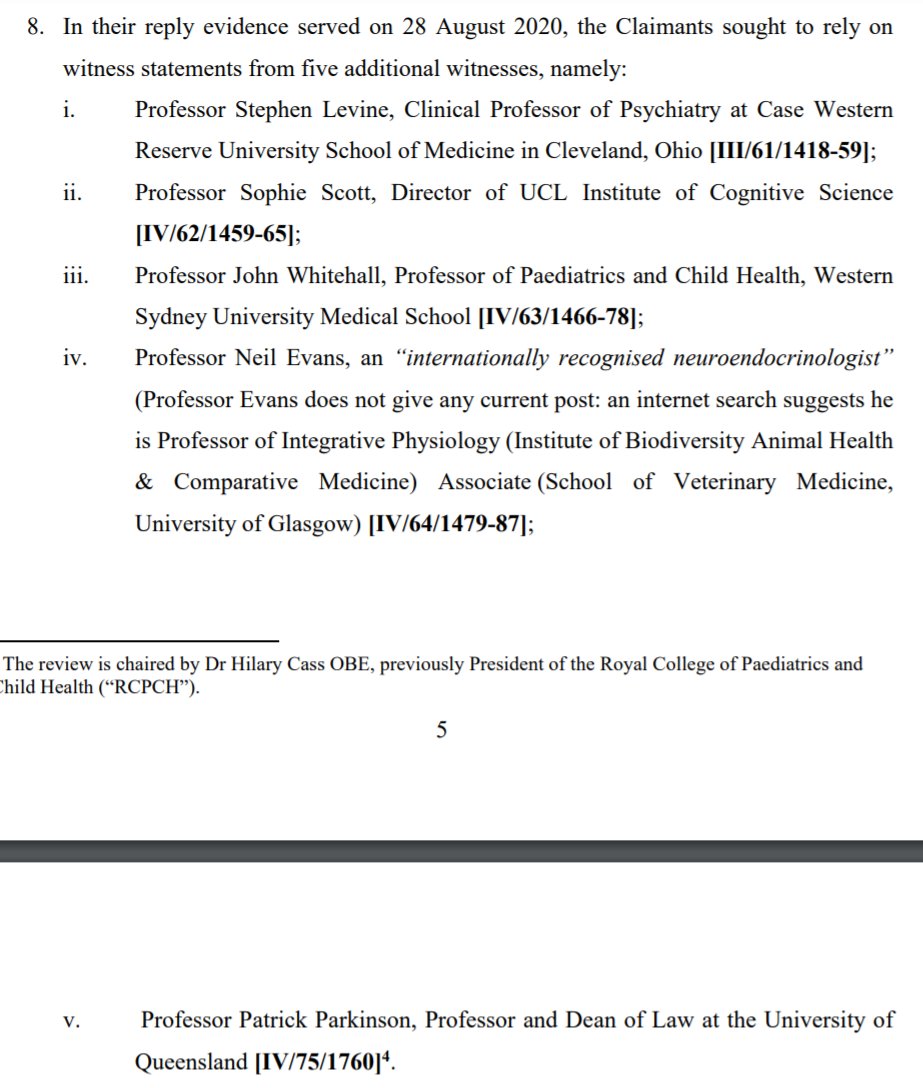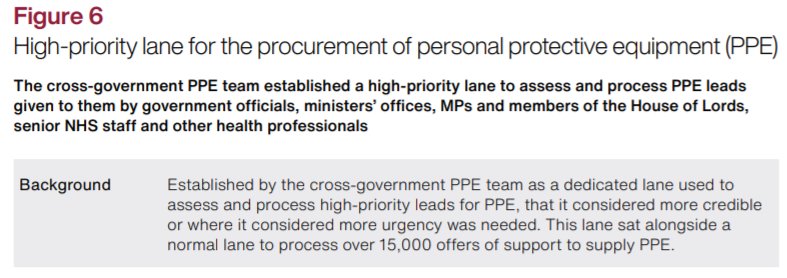We at @GoodLawProject have a paralegal attending the case management hearing in the Tavistock's appeal in the Bell case on behalf of our trans defence fund. Occasional updates from them as the hearing progresses...
A slight sense of Mandy Rice Davies about these submissions (from both sides).
More from Jo Maugham
If you want to know what happens to populations living in austerity who trade with the US on WTO terms, take a look at Tonga. THREAD
I visited Tonga in 1981 and it was, like so many other Pacific Island nations, slowly adjusting to Westernisation. The people ate mostly fish and vegetables. /1
Now it has rates of Type 2 diabetes of up to 40%, life expectancy has fallen by 10 years and well over half the population is obese. So what happened? (stats https://t.co/1XQHdqL8o8) /2
What happened was that the US discovered that Tonga was a great dumping ground for a cheap and locally unsaleable product known as a Turkey 'tail', essentially a gland of 40-45% fat. /3
They were fatty and, because cheap, attractive to a poor population. By 2007, in another Pacific Island nation, Samoa, 20 kilos per person were being sold every year. But it banned them for public health reasons. https://t.co/2f1N8tuMp6 /4
I visited Tonga in 1981 and it was, like so many other Pacific Island nations, slowly adjusting to Westernisation. The people ate mostly fish and vegetables. /1
Now it has rates of Type 2 diabetes of up to 40%, life expectancy has fallen by 10 years and well over half the population is obese. So what happened? (stats https://t.co/1XQHdqL8o8) /2
What happened was that the US discovered that Tonga was a great dumping ground for a cheap and locally unsaleable product known as a Turkey 'tail', essentially a gland of 40-45% fat. /3
They were fatty and, because cheap, attractive to a poor population. By 2007, in another Pacific Island nation, Samoa, 20 kilos per person were being sold every year. But it banned them for public health reasons. https://t.co/2f1N8tuMp6 /4
We need to talk about the 'expert' witness statement evidence led by Ms Bell in her successful case before the Tavistock. THREAD
You can see who gave evidence in her support from these extracts from the Tavistock's Skeleton Argument.

Helpful for you to bear in mind that her solicitor was a man called Paul Conrathe, who has a long association with the religious right in the US (I have talked about him a number of times but this is as good a starting point as any).
I am not going to address here other criticisms that might be made of the form in which that evidence was given or the timing of its service before the court. I am just going to address, in alphabetical order, the individuals whose evidence Mr Conrathe led on Ms Bell's behalf.
The first witness, alphabetically, was Associate Professor of Sociology at the University of Oxford, Michael Biggs.
Mr Biggs was exposed for posting transphobic statements online under a fake twitter handle: @MrHenryWimbush according to this report.
You can see who gave evidence in her support from these extracts from the Tavistock's Skeleton Argument.

Helpful for you to bear in mind that her solicitor was a man called Paul Conrathe, who has a long association with the religious right in the US (I have talked about him a number of times but this is as good a starting point as any).
In this thread, I noted the lawyer acting against the Tavistock, Paul Conrathe, is using very similar arguments (those under 18 cannot consent at all; or cannot lawfully consent without x conditions) as he has run/is running in a number of cases challenging abortion rights. https://t.co/gJk4c9bUED
— Jo Maugham (@JolyonMaugham) June 21, 2020
I am not going to address here other criticisms that might be made of the form in which that evidence was given or the timing of its service before the court. I am just going to address, in alphabetical order, the individuals whose evidence Mr Conrathe led on Ms Bell's behalf.
The first witness, alphabetically, was Associate Professor of Sociology at the University of Oxford, Michael Biggs.
Mr Biggs was exposed for posting transphobic statements online under a fake twitter handle: @MrHenryWimbush according to this report.
So, just before Christmas, Government what it called a "response" to this New York Times account of cronyism in pandemic spending.
And I said, when that "response" - which you can read here https://t.co/gLEJzuqoAx - was published that every single notional rebuttal by Government of a claim made by the New York Times was false, misleading or both.
And it's time for me to make good.
Here's the first "rebuttal" by Government to the New York Times' claim that: "The government handed out thousands of contracts to fight the virus, some of them in a secretive V.I.P. lane."

A number of points might be made.
(1) Government cannot say the NYT got it wrong. (2) the NAO found the VIP lane (later renamed the high-priority lane) "sat alongside" the normal lane. And I have shown elsewhere VIP contracts were handled by different teams all the way through.

(3) Although Govt says "offers of support raised by Opposition MPs were dealt with expeditiously" the NAO report does not record any referrals made by an Opposition MP leading to a contract - and the Government response telling does not say any did.
And I said, when that "response" - which you can read here https://t.co/gLEJzuqoAx - was published that every single notional rebuttal by Government of a claim made by the New York Times was false, misleading or both.
And it's time for me to make good.
Here's the first "rebuttal" by Government to the New York Times' claim that: "The government handed out thousands of contracts to fight the virus, some of them in a secretive V.I.P. lane."

A number of points might be made.
(1) Government cannot say the NYT got it wrong. (2) the NAO found the VIP lane (later renamed the high-priority lane) "sat alongside" the normal lane. And I have shown elsewhere VIP contracts were handled by different teams all the way through.

(3) Although Govt says "offers of support raised by Opposition MPs were dealt with expeditiously" the NAO report does not record any referrals made by an Opposition MP leading to a contract - and the Government response telling does not say any did.
More from Law
You May Also Like
I’m torn on how to approach the idea of luck. I’m the first to admit that I am one of the luckiest people on the planet. To be born into a prosperous American family in 1960 with smart parents is to start life on third base. The odds against my very existence are astronomical.
I’ve always felt that the luckiest people I know had a talent for recognizing circumstances, not of their own making, that were conducive to a favorable outcome and their ability to quickly take advantage of them.
In other words, dumb luck was just that, it required no awareness on the person’s part, whereas “smart” luck involved awareness followed by action before the circumstances changed.
So, was I “lucky” to be born when I was—nothing I had any control over—and that I came of age just as huge databases and computers were advancing to the point where I could use those tools to write “What Works on Wall Street?” Absolutely.
Was I lucky to start my stock market investments near the peak of interest rates which allowed me to spend the majority of my adult life in a falling rate environment? Yup.
Ironies of Luck https://t.co/5BPWGbAxFi
— Morgan Housel (@morganhousel) March 14, 2018
"Luck is the flip side of risk. They are mirrored cousins, driven by the same thing: You are one person in a 7 billion player game, and the accidental impact of other people\u2019s actions can be more consequential than your own."
I’ve always felt that the luckiest people I know had a talent for recognizing circumstances, not of their own making, that were conducive to a favorable outcome and their ability to quickly take advantage of them.
In other words, dumb luck was just that, it required no awareness on the person’s part, whereas “smart” luck involved awareness followed by action before the circumstances changed.
So, was I “lucky” to be born when I was—nothing I had any control over—and that I came of age just as huge databases and computers were advancing to the point where I could use those tools to write “What Works on Wall Street?” Absolutely.
Was I lucky to start my stock market investments near the peak of interest rates which allowed me to spend the majority of my adult life in a falling rate environment? Yup.


















